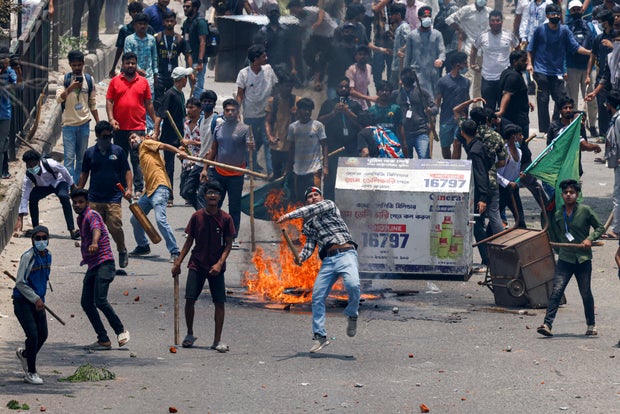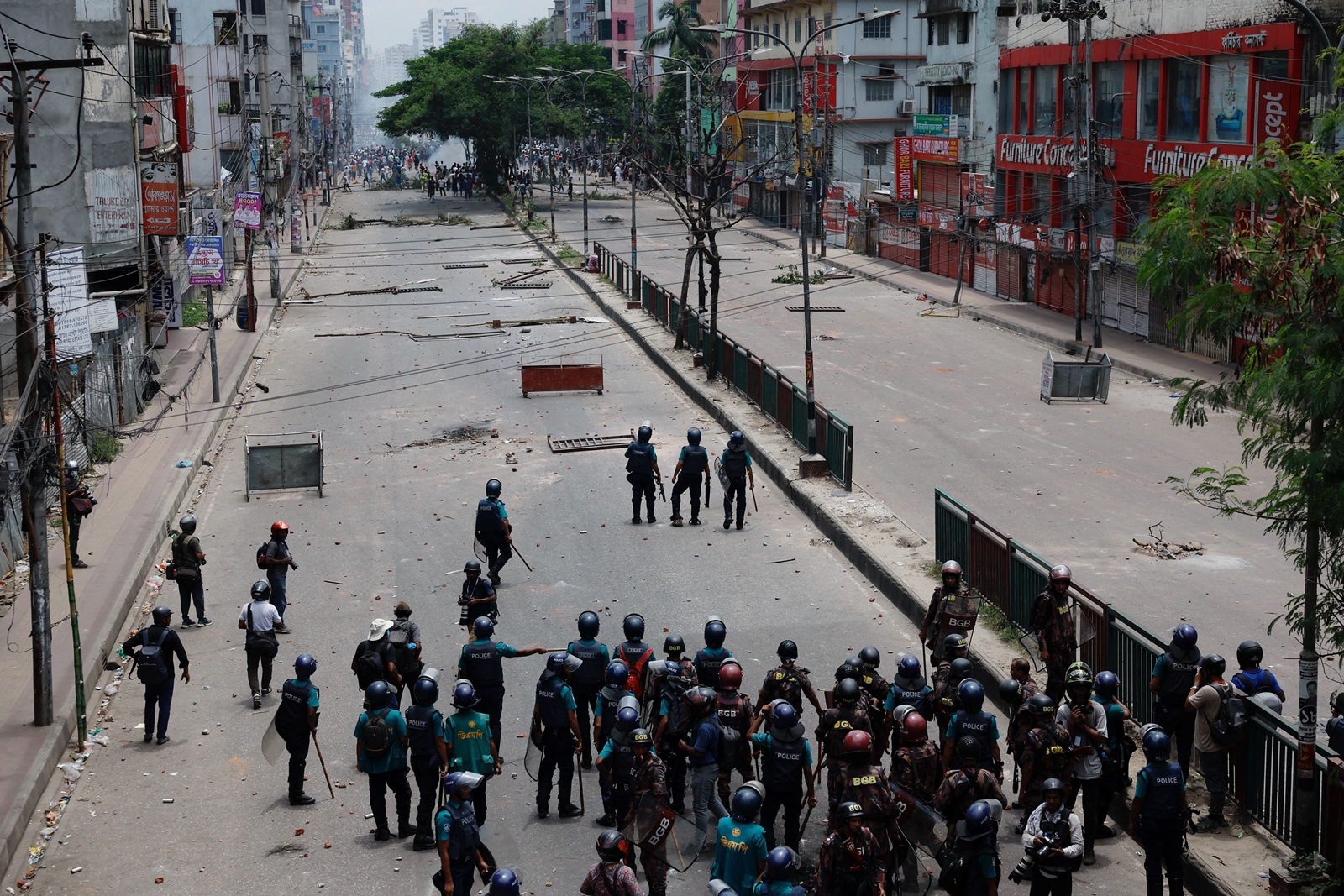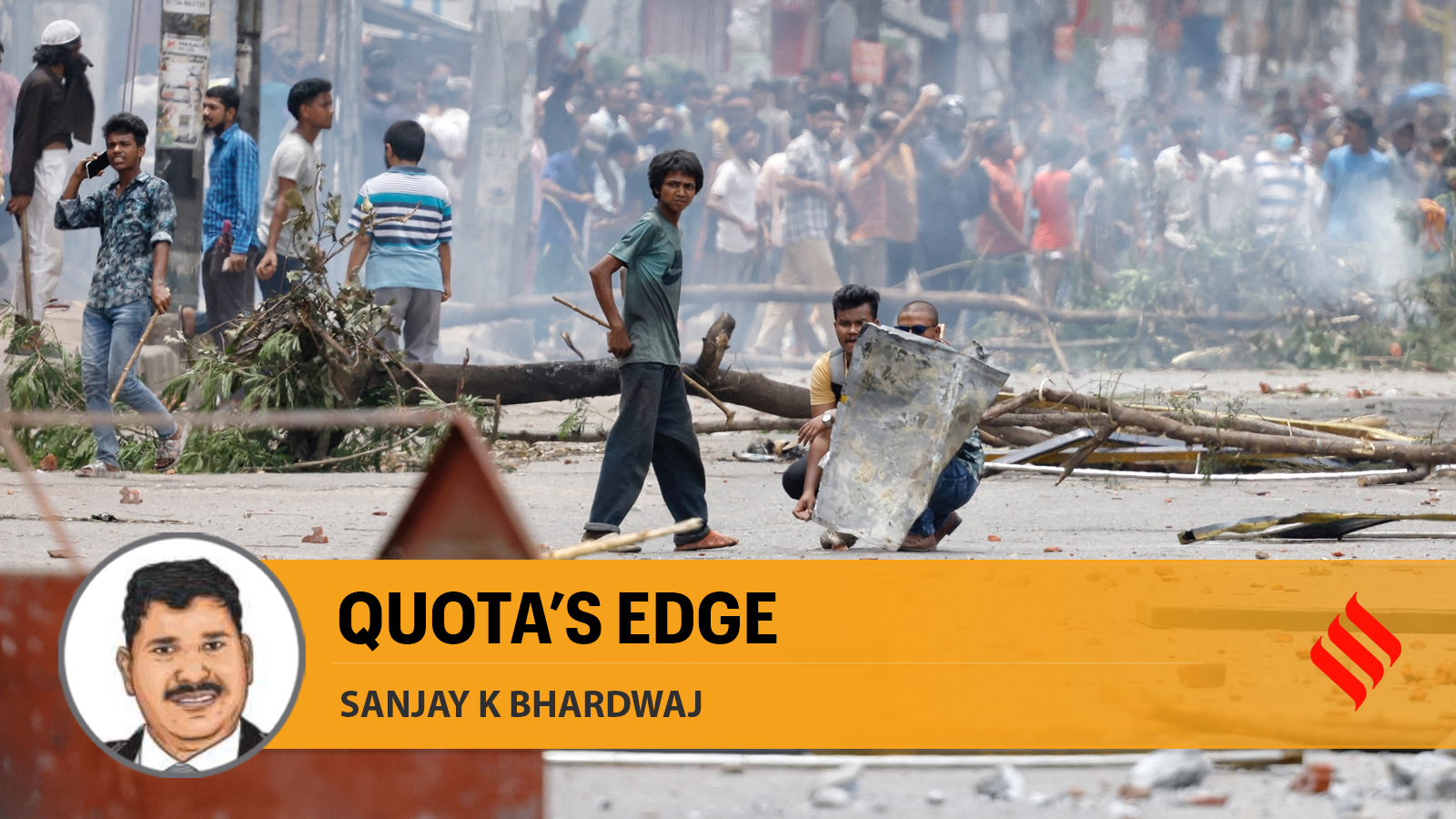
Bangladesh has been embroiled in violent protests since the beginning of July, following the Bangladesh Supreme Court's decision to reinstate a controversial quota system for civil service jobs. The quota system, which previously allocated 30% of civil service positions to veterans and their relatives, was abolished in 2018 due to widespread student-led protests. However, the court's ruling sparked renewed demonstrations and clashes between students and police.
The protests have resulted in over 100 deaths and injured hundreds of people. The German Foreign Office has advised its citizens against traveling to Bangladesh due to the violent clashes and a curfew that is currently in place. The US State Department has also issued a travel advisory, urging Americans to reconsider their travel plans.
The protests began after the High Court reinstated the quota system, which many young people feel disadvantages them. The Supreme Court's decision came despite widespread opposition from students and civil society groups. The Awami League party, which is in power, has defended the quota system as a way to recognize the contributions of those who fought for Bangladesh's independence during the 1971 war.
The protests have been ongoing for over a month, with no signs of abating. Soldiers have been deployed across cities in Bangladesh and a stay-at-home order has been in place since Tuesday. The government has declared Sunday and Monday as public holidays, with only emergency services allowed to operate.
The quota system was first introduced in 1972, reserving 30% of seats in public-sector jobs and higher education institutions for freedom fighters. However, critics argue that it perpetuates nepotism and undermines meritocracy. The protests have highlighted deep-rooted political divides between competing goals and principles in Bangladeshi society.
Bangladesh gained independence with a sense of hard dichotomies between democracy vs economic development, political participation vs national integration, liberty vs equality, and pro-liberation vs anti-liberation forces. Protests in Bangladesh are often driven by long-standing ideological differences between political parties. Students have been at the center of crucial movements in Bangladeshi history, including the Language Movement and the Liberation War.
The current protests were spearheaded by left-wing and liberal student groups, as well as the main opposition party, Bangladesh National Party (BNP). The quota system was introduced in Bangladesh in 1972 and mandated that 30% of seats in public-sector jobs and higher education institutions be reserved for freedom fighters. Protests against the quota system began in 2018 and successfully pressured the government to discontinue it, but it was reinstated by the Supreme Court in June 2023.
Violence erupted between pro-government student groups and anti-quota demonstrators, resulting in over 100 deaths and over 2,500 injuries. The government has agreed to do away with the quota system but students are demanding an immediate legislative resolution.
The protests have also highlighted the deep-rooted political divides in Bangladeshi society. The Awami League party, which is in power, has defended the quota system as a way to recognize the contributions of those who fought for Bangladesh's independence during the 1971 war. However, critics argue that it perpetuates nepotism and undermines meritocracy.
The protests have also raised questions about Prime Minister Sheikh Hasina's leadership and her commitment to democratic values. The Awami League party has been in power since 2009, and some critics argue that the government has become increasingly authoritarian under her tenure.
Despite the violence and political turmoil, Bangladesh remains an important player in the global community. It is a member of the United Nations, the World Bank, and other international organizations. The country is also home to a large and growing economy, with a GDP of over $300 billion.
The protests are likely to continue for some time, as both sides dig in their heels and refuse to back down. It remains to be seen how the government will respond and whether it will be able to find a peaceful resolution that addresses the concerns of all parties involved.





